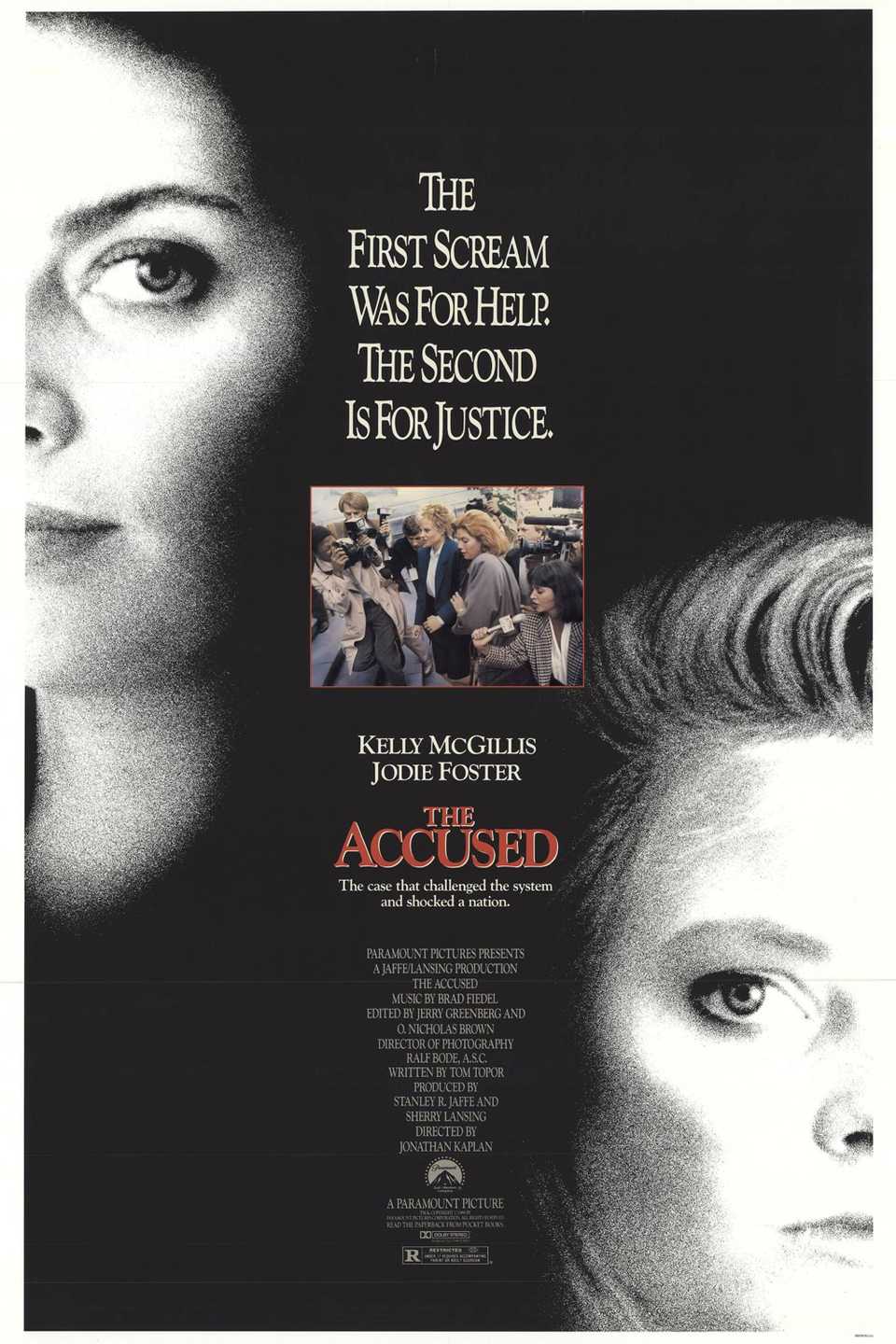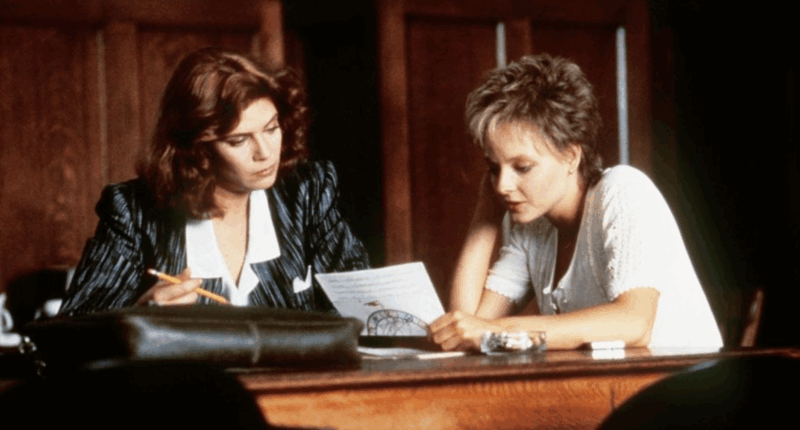There are a few American actors who are as accomplished as Jodie Foster. Bold and unapologetic, she’s never been afraid to pick roles that show society some of its ugliest reflections on the screen. At 14, Foster had already stared down Martin Scorsese’s camera in Taxi Driver and walked away with an Oscar nomination for playing a child prostitute preyed upon by the streets of New York. As if to complete the unfinished thematic business of her childhood role, she returned with a career-best performance in another heart-wrenching crime drama, the 1988 film The Accused (yes, her performance is even more powerful than in The Silence of the Lambs). Loosely based on a true story, The Accused explores a flawed justice system that blames victims for sexual offenses. Foster’s strong showing earned her her first Oscar for Best Actress, solidifying her as one of Hollywood’s most captivating talents.
‘The Accused’ Is a Harrowing but Necessary Legal Drama
Directed by Jonathan Kaplan, the film stars Foster as Sarah Tobias, a waitress who is gang-raped in a local bar while patrons cheer the attackers on. But more than the assault, The Accused is about the second wave of trauma that follows. Foster’s Sarah is a survivor who confronts the failures of the justice system and a society eager to blame her for the violence she endured. Kaplan pairs Foster with Kelly McGillis, who plays her lawyer, the deputy district attorney Katheryn Murphy. After finding common ground, Katheryn and Sarah team up to confront a system that makes justice too costly for victims of sexual assault. The film captures these inefficiencies by having its camera’s lens linger on the prosecution. Through the proceedings, we witness what Sarah expects to be a straightforward case morph into her trial, where she is forced to answer questions like what clothes she was wearing, whether she was drunk or not, and even intrusive lifestyle choices like when she last had intercourse before the incident, which only serve to blame her for the assault.
But if you thought that the above is all made up, it’s not. The film is loosely based on the true-crime story of a gang rape ordeal that shocked America. In 1983, four men raped a 21-year-old woman, Cheryl Araujo, in a New Bedford bar. The highly publicized case exposed the failures of the justice system and the complicity of the media. Kaplan’s film channels the incident’s real-life outrage, forcing viewers to sit through the experience as uncomfortably as Sarah does. The film’s raw portrait of survival elicited conversations that have played a part in trying to change how Hollywood and, by extension, America address sexual violence.
37 Years Later, Jodie Foster’s Performance in ‘The Accused’ Still Shakes Audiences
Foster embodies Sarah Tobias unapologetically: she is loud, scrappy, and openly sexual. She smokes, she drinks, she flirts, and she vehemently refuses to accept the idea that any of it implies she was asking for the brutality that was meted out against her. Sarah is messy and does not try to hide it to earn empathy and be considered deserving of justice. She speaks up, both in action and words, confronting audiences with the fact that survivors don’t have to look and act like what has often been presented in the media. While the assault sequence itself is one of the most harrowing images ever put on screen, Foster’s brilliance is in her portrayal of the aftermath. She gives us a slumped expression to depict Sarah’s despair, explosions of anger to show her rage, and uncomfortable silences to show how her internal world is collapsing. Ultimately, her courtroom defiance marks a clear resolve that wins us to her hopeful side. Foster plays her with rage and charisma, managing to take us past her emotional state and deep into her state of mind. And that’s what’s revolutionary about her performance. The Academy noticed. And the win announced Jodie Foster as one of the most fearless talents of her generation.
Foster’s performance in The Accused is considered among cinema’s greatest of all time, with Première ranking it among the top 100. Her Best Actress Oscar win for the role was just the second time in the history of cinema that a film had won the golden statuette with a single nomination. Before Foster’s win, the only other instance was way back in 1962, when Sophia Loren won for Two Women. If you love a good courtroom drama, The Accused has got your back, and it will turn your rage into part of its storytelling. With its reception sealed by a 93% score on Rotten Tomatoes and Foster’s seismic performance, The Accused is essential viewing, even if it’s not necessarily an easy one.

The Accused
- Release Date
-
October 14, 1988
- Runtime
-
111 Minutes
- Director
-
Jonathan Kaplan








